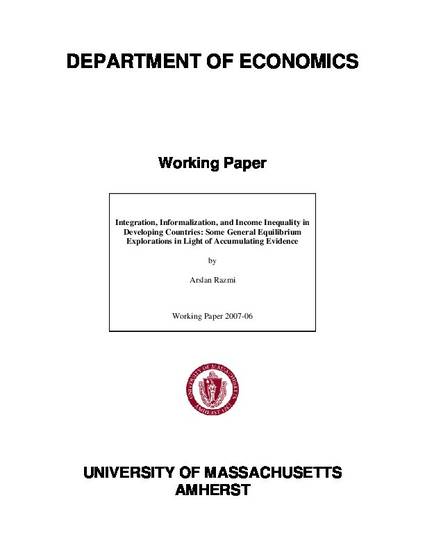
By focusing on structural features within developing economies, this paper attempts to reconcile developments observed in many post-liberalization countries with the help of modified versions of standard trade theory factor endowment models. The common thread generating most of our interesting results is the presence of sectors that are even more labor-intensive than those producing traded goods. Measures undertaken to enhance public sector efficiency and attract investment in an import-intensive export sector may increase rental-wage and skilled- unskilled wage gaps, contra the predictions of the simple Heckscher-Ohlin-Samuelson model. Moreover, increasing income inequality can exist side-by-side with informalization of the economy. The greater unskilled labor-intensity of the informal sector, factor market rigidities in the formal sector, and the sector specificity of some factors crucially influence the outcomes of policy experiments. Even within a simple framework that assumes full employment of resources, large segments of labor may have good reason to fear the consequences of reform.
Available at: http://works.bepress.com/arslan_razmi/9/
